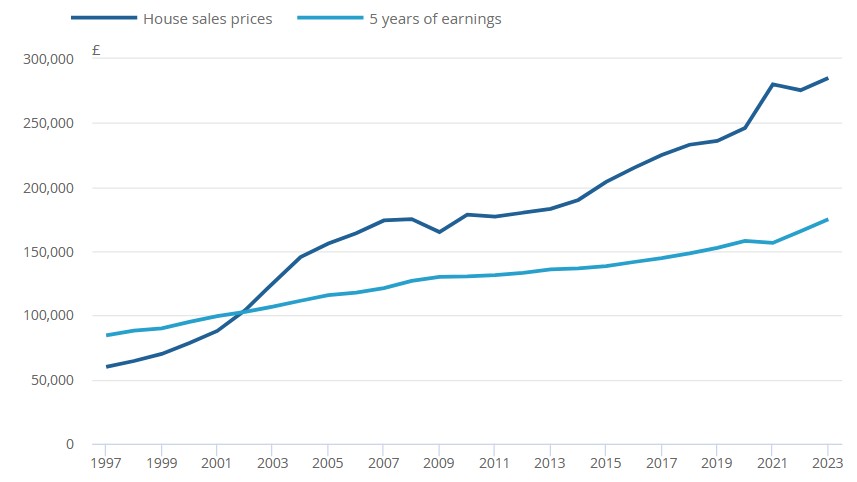Opinion: we risk returning to the days of reckless mortgage lending

Lenders are now offering payment holidays up front and mortgages worth six times a borrower’s income.
First-time buyers can now get onto the property ladder without having to make any of those pesky mortgage repayments for the first three months.
That's right, Skipton Building Society is offering borrowers the chance to skip payments up front to help those who haven't saved enough to cover the additional costs that inevitably arise when first moving in.
To be clear, interest is still racking up during this time, meaning borrowers will have to pay more over the term of the loan.
The Delayed Start Mortgage is available to borrowers able to muster up a 5% deposit.
It comes a few months after Nationwide announced it would start lending up to six times the income of first-time buyers.
And these are just two isolated examples that caught our eye.
There is a wider trend for lenders either loosening their eligibility criteria or coming up with new ways to account for the fact that house prices have been outstripping salaries for some time now.

Image: ONS
Not a criticism of buyers
OK, so we know how hard it is for first-time buyers to get on the housing ladder right now.
Many of them have been saving for years and are forced to keep renting or living with their parents to put together enough cash for a deposit.
And mortgage applicants will still have to meet relatively strict affordability criteria, which will be assessed individually.
But is it sensible to encourage people who are either unable to absorb any financial shocks up front or will need to overstretch themselves to take on this kind of debt – not to mention risking negative equity?
As Albert Einstein once said, insanity is doing the same thing over and over again and expecting a different outcome.
Why can’t we learn from recent housing market history?
While it may be a world away from the days of 125% loan-to-value mortgages and subprime loans, encouraging first-time buyers to take such risks with their finances without the cushion of a decent deposit behind them is a worrying development.
Many home buyers are already able to take out 35 or even 40-year mortgages, instead of the standard 25 years, which means many could be paying off debt until they are 70 or even 75.
But who knows if any of us will still be fit enough to work and able to afford the mortgage at that age, when many will be retired?
And while interest rates have fallen a little, they still remain relatively high and so does the cost of living, which is up by 20% over the past two years due to the rising cost of energy and food.
The job market isn’t exactly firing on all cylinders either.
Mortgage payments are not your only cost as a homeowner
What’s more, when you’re a homeowner, the monthly mortgage payment isn’t the only outlay to worry about.
I know when I bought my first property, I was surprised to find that I was spending out a lot more than I expected each year on things such as buildings and contents insurance and property maintenance, on top of my mortgage.
When you’re renting, it’s the landlord’s responsibility to insure the building and fix anything that goes wrong.
But when you’re the homeowner, it’s down to you.
And, if we go a little further back in recent history, we might recall mid-to-late 1980s and 1990s homeowners struggling with negative equity, paying interest rates of 15%, struggling to pay the bills and having their homes repossessed.
Is this what we are setting our young people up for?
More risk-taking seems inevitable
While we Brits are obsessed with owning our own homes, is it really worth risking financial ruin for?
It seems inevitable that buyers will keep taking on slightly more risk, given that wages simply aren't keeping up with house prices.
Maybe it’s time we reprioritise our thinking on this.
An Englishman or woman’s home may be their castle, but it could just as easily be a rented one as an ill-afforded, overpriced one 95% owned by the lender.
Comments
Be the first to comment
Do you want to comment on this article? You need to be signed in for this feature